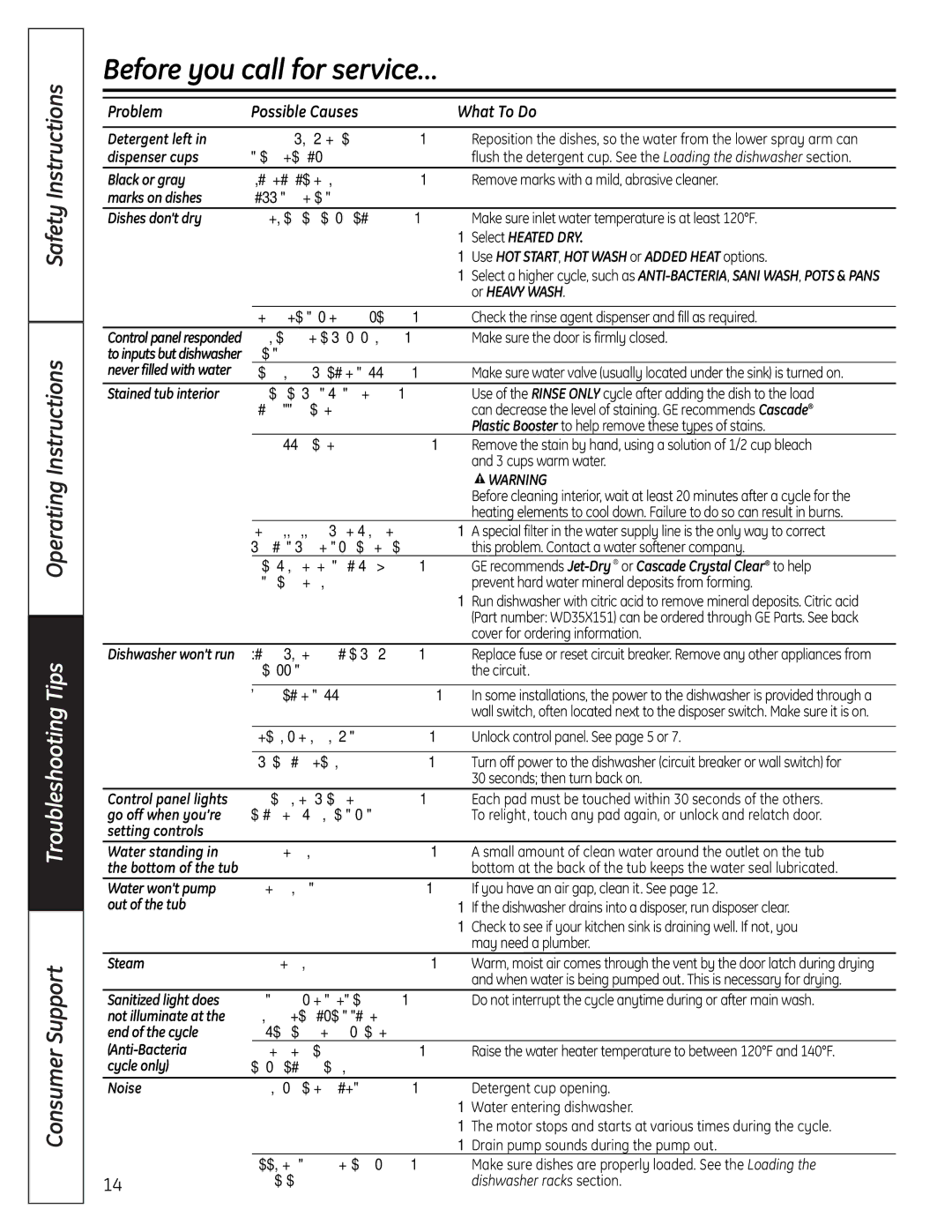EDW4000, GLD5000, GLD6000, GHDA600, GLD4000 specifications
The GE GLD4000, GHDA600, GLD6000, GLD5000, and EDW4000 models are part of GE's innovative portfolio of industrial and commercial power generation solutions. Each model boasts a unique set of features and technologies designed to meet specific operational needs and efficiency standards in the power generation sector.Starting with the GE GLD4000, this model is renowned for its high reliability and versatility in various applications. Equipped with advanced digital controls, the GLD4000 integrates seamlessly into existing infrastructure. It features exceptional fuel efficiency and can operate efficiently across different fuel types, including natural gas and diesel. The compact design allows for simplified installation and maintenance, making it a preferred choice for businesses aiming to reduce downtime and operating costs.
Moving on to the GHDA600, this model emphasizes robustness and durability, designed for rugged environments. The GHDA600 is particularly suited for remote locations where traditional power sources may be unavailable. With its integrated thermal management system, it can operate reliably even in extreme temperatures. The unit’s modular design allows for scalability, enabling customers to expand power capabilities as their needs grow.
The GE GLD6000 stands out in the lineup for its high performance and energy output. This model includes advanced monitoring systems that provide real-time data analytics, enhancing operational efficiency. The GLD6000 is engineered for low emissions and adheres to stringent environmental standards. Its advanced cooling and lubrication technologies ensure optimal performance while minimizing wear and tear.
In contrast, the GLD5000 emphasizes flexibility and customization. This model can be tailored to meet specific operational requirements, making it suitable for a wide range of applications, from industrial plants to commercial buildings. Enhanced connectivity features allow for remote monitoring and management, giving operators greater control over performance metrics and energy consumption.
Lastly, the EDW4000 is designed for emergency and backup power applications. It features quick start capabilities and robust energy storage options to ensure power delivery during outages. The unit’s design prioritizes safety and reliability, with advanced fire suppression and environmental protection measures. Its compact footprint makes it ideal for urban settings where space is at a premium.
Together, these GE models represent a comprehensive approach to energy solutions, combining innovative technology, efficiency, and adaptability to meet diverse power generation needs across various industries.

